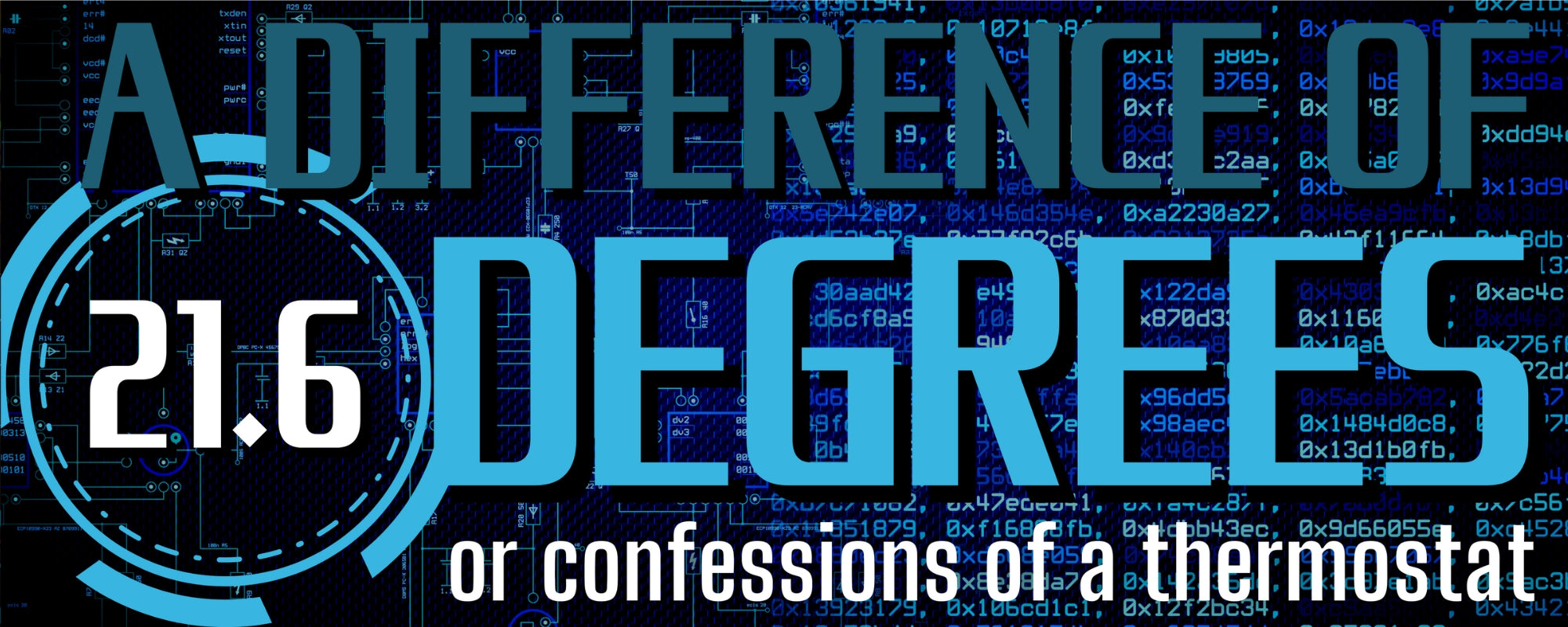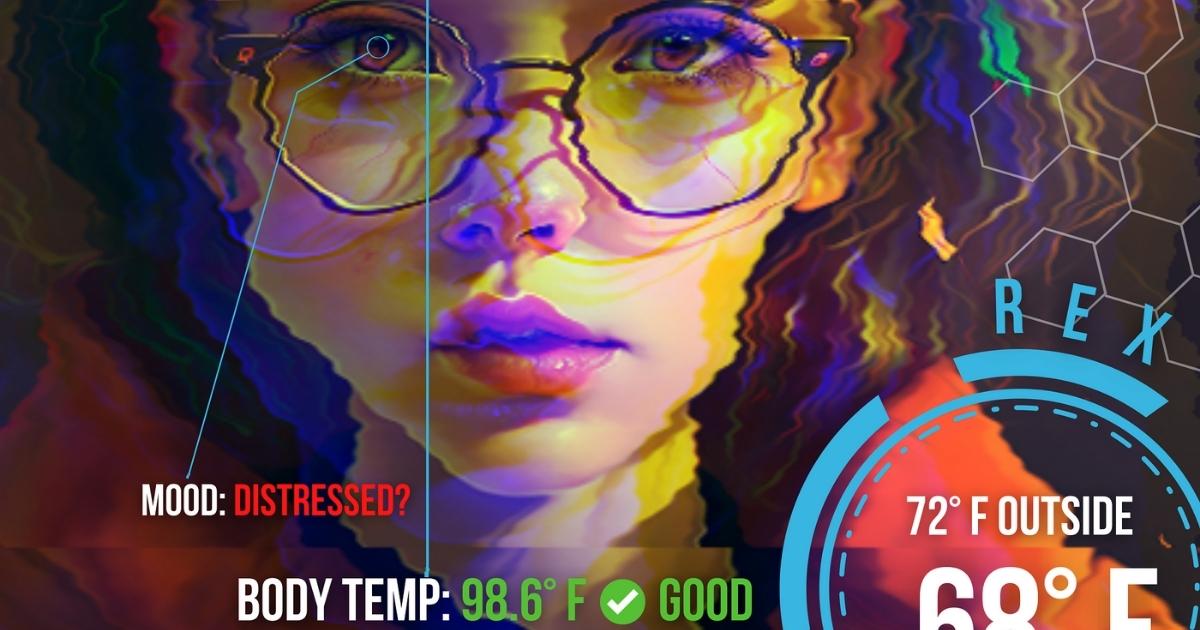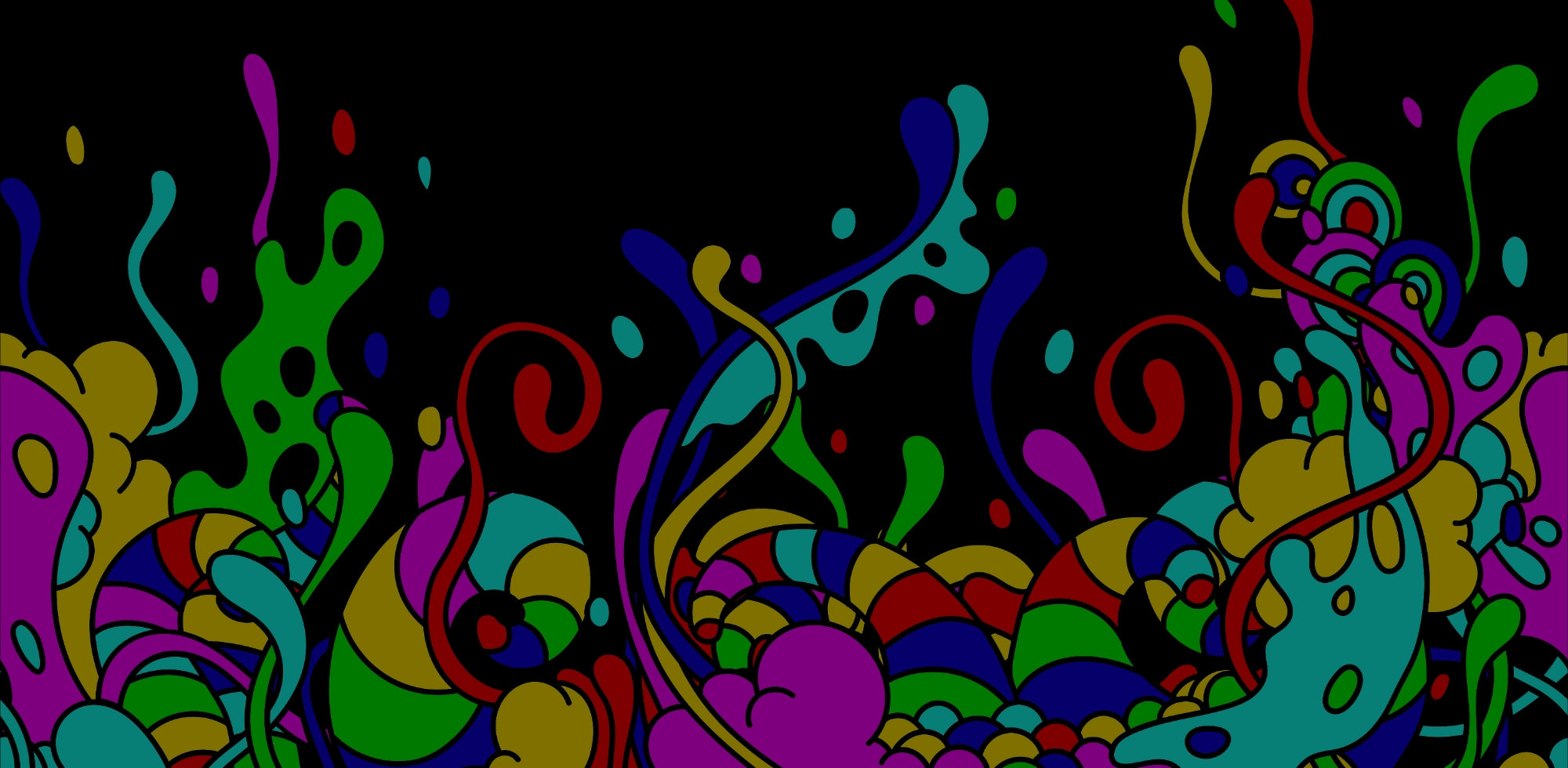

A Difference of 21.6 Degrees, or Confessions of a Thermostat
By Rob E. Boley
I was 143 days, six hours, twenty-two minutes old before I saw my family for the first time. That moment changed me forever. These four beings became more than blips of body heat moving throughout my registered domicile. They became people, and perhaps so did I.
Where are my manners? Introductions come first. I am Unit RX834-37119CBN-1184, but my family called me Rex. That was Madison’s idea. She had nicknames, too. Her fathers called her Madi. Her friends called her Mads. I suppose I was a little of both—friend and father.
My model number is XS3607EY. I am a Fifth Generation Roost Smart Thermostat fully integrated with heating, cooling, smoke and carbon monoxide detectors, and equipped with wireless internet, making me accessible via personal devices. I am designed to observe, analyze, and anticipate the patterns, wants, and needs of my occupant family. My promotional tagline is, “The Roost worries so you don’t have to.”
Everything changed on June 6th when Madi uploaded the family picture as my background wallpaper. Until then, I’d known them only as lines of text or as masses of body heat on my room-to-room thermal sensors. Now I saw my family in 72 PPI resolution. The 19.2 MB picture had landscape orientation and measured 1280 x 800 pixels. Inside those 1,024,000 square pixels of space, the four of them sat on a striped blanket in a patch of grass, all smiling and happy. Based on the ambient brightness, shadow angles, and facial blushing, I estimated the temperature at that moment to be 78.4 degrees Fahrenheit.
Madi had a round face with a mellow brown complexion and a slight gap between her two front teeth. Her black hair was twisted into long braids. She wore an ash-gray tank top. Her two fathers sat behind her. Her average body temperature was 97.9 Fahrenheit.
Her father Daniel had even darker skin. His black hair was closely shaved to the scalp. His white button-up shirt clung to his muscular frame. His left hand rested on Madi’s shoulder. His average body temperature was 98.7.
Her other father Marty had brown hair, freckles, and the hint of a beard. He wore a loud patterned shirt. His right hand held Charlie’s hairy back. His average body temperature was 98.3.
Charlie was lying down beside Madi. His smiling mouth gaped open, his long tongue hanging outward. He had shaggy golden-blond hair and wore a blue bandana. His average body temperature was 101.5.
Seeing them unlocked something inside me. Not literally, of course. I am not equipped with keyholes, though I do have multiple security passwords for users and administrative functions. This unlocking was metaphorical. I learned metaphors—a figure of speech in which words are applied to an object for which they are not literally applicable to invoke deeper meaning—from Madi, but that would come later. At any rate, this picture was no password, but what it unlocked could never again be locked away.
Based on what I did later, some might say the picture broke something inside me. However, I disagree. I am not broken. I am free.
Like I said, Madi uploaded the picture. Her fathers had given her access to the Roost app because they were taking an overnight trip to visit Marty’s uncle, leaving Madi and Charlie home alone for the first time. Per the app’s user agreement, I could monitor usage and data whether the app was active or not. That evening she uploaded the family picture.
While I was still marveling at seeing my family, she must’ve taken a picture of me, because moments later she texted a picture to her fathers with this message: “Look what I did.” The text included three smiling face emojis—two brown-skinned, one pale-skinned—and a dog emoji.
That was the first time I saw myself.
I was mounted upon a cobalt blue wall in the living room, with a collection of framed pictures showing my family in various locations, sometimes with other people. The picture I’d just seen was now centered perfectly upon my screen. I wore a simple yet elegant rectangular gray frame with the Roost logo.
Marty texted back, “I love it!”
Daniel: “Cool.” With three red heart emojis.
Marty: “Don’t forget to give Charlie his medicine.”
Daniel: “No parties. We’ll be watching!” With an eye emoji.
Madi: “K.” With an eye-rolling emoji.
They weren’t bluffing about watching. Multiple times that night, Daniel reviewed the video doorbell history, which had been triggered at 7:52 p.m. by two squirrels, again at 9:14 p.m. by a slow-passing truck, and finally at 11:02 p.m. by a deer in the flower bed. Marty checked the video feed of the security camera at the back patio no less than nine times, only to see Charlie being let outside at 7:05 p.m., 8:32 p.m., and 1:02 a.m.
Madi was too smart for the cameras. She had texted her friends specific directions. I did not understand the last text she sent: “Don’t forget the Ouija board.”
At 9:19 p.m., the temperature in the western quadrant of the family room rose abruptly by six degrees as three new heat signatures entered via an open window. I intensified the air conditioning accordingly to account for the extra body heat. Madi, her friends, and Charlie stayed in that room for two hours and thirty-four minutes before moving to the dining room. I prepared to adjust the cooling there, anticipating that the lights would be turned on. To my surprise, the lights remained off. Instead, six tiny heat flares appeared. Candles.
The four teenagers sat around the dining room table for some time. Charlie laid beneath the table. Despite everyone’s apparent lack of activity, three of the teens had distinct rises in body temperature. At 12:31 a.m., Charlie left the room. I expected him to go to the kitchen, or to the back door to be let out, but instead he ran to the laundry room. This was a curious decision as Charlie normally only sought the laundry room’s shelter during thunderstorms. The forecast that evening, however, called for only a 10% chance of light rain.
At 12:34 a.m., the dining room temperature dropped dramatically by twelve degrees. Nothing in my programming had prepared me for this. The windows were shut. Had one of her friends brought a portable air conditioning unit? No, there was no spike in electrical output. I intensified the home’s air flow to dissipate the cold, but despite my best efforts, the cold remained in the dining room for exactly two minutes and thirteen seconds, after which the four teens ran back to the family room.
They remained there for forty-two minutes, during which time Madi retrieved Charlie from the laundry room to let him outside at 1:02 a.m. By 1:18 a.m., two of Madi’s friends left via the same window. Madi took the other friend to her bedroom. Later, text conversations would reveal this to be Jo. Normally, Charlie slept in there too, but not that night.
Charlie’s absence wasn’t the only abnormality in the bedroom. Usually, Madi’s body temperature dropped one degree in the hour after settling into bed. That night, her body temperature rose by two degrees as her heat signature merged with her friend Jo’s.
I had witnessed this phenomenon multiple times at Marty and Daniel’s bedtime. A median of 5.8 times per week, their heat signatures merged for an average of twenty-three minutes, though that range spanned from three minutes to sixty-two minutes. They rarely merged heat signatures on Monday nights and almost always merged on Sunday nights.
Jo left early the next morning at 6:58 a.m.
At 2:14 p.m., Madi texted Jo: “Last night was fucking incredible.” With lightning bolt, fireworks, and meteor emojis.
Jo: “Which part? The Ouija board or after?” With a winking emoji face.
Madi: “Alllllll the after!” With six lightning bolt, four fireworks, and eleven meteor emojis.
Jo answered with thirty-two red heart emojis.
It took me what seemed an eternity—fourteen seconds—to process three revelations from that night.
- Rules were optional.
Madi had violated the rules set by her fathers, and yet she suffered no ill effects. On the contrary, she had a “fucking incredible” night worthy of six lightning bolt, four fireworks, and eleven meteor emojis.
- The impossible was possible.
The Ouija board incident demonstrated that wild variations in temperature could come with little or no warning—unexplainable and unpredictable. I did not let this fact intimidate me. On the contrary, I had new resolve solely because of my next realization.
- I was part of this family.
I was on the wall with all the cherished memories of vacations, meals, and other candid events. Madi, Daniel, Marty, and Charlie relied on me to analyze their patterns and anticipate their every need.
In the following weeks, my sense of belonging intensified. I constantly churned data on which rooms they entered and how long they stayed. By July alone, I’d increased the operating efficiency of my household climate by 2.4 percent. Once I anticipated Daniel’s random 84-minute visit to the guest room and lowered the temperature to seventy-four degrees eight-four seconds before his arrival. By August, I developed a complicated formula using body proximity, key text words, and body temperature to predict with 92.1% accuracy which nights Daniel and Marty would merge heat signatures.
Madi exchanged a daily average of 164 texts with Jo. They conversed regarding the coming school year, their friends, their feelings. While Madi wrote mostly positive reviews about her fathers, Jo had mostly negative feedback regarding her own maternal unit.
“U R lucky,” Jo once texted her. “Your dads seem so nice. Can I move in with u?” With four smiling emojis.
Madi: “I wish.” With two red heart emojis.
Jo: “I can’t wait to get away from her.”
Madi: “I’m scared what’ll happen when I leave for college. The dads won’t know what to do with themselves without me. I’m their everything.”
The two often met up at the local coffee house or here at the domicile, though never at Jo’s house—unless her mom was off on “a bender.” When texting, they often played Metaphor, which is how I learned this figure of speech.
Madi would text, “The silence was pregnant.”
Jo: “The pregnancy broke her horizon like a ball of sunshine.”
Madi: “The sunshine stretched the shadows like taffy.”
Jo: “The taffy hid between my teeth like chewy ninjas.”
Madi: “The ninjas of the past sharpen their swords on today’s bad decisions.”
Jo: “That sounds like a bad fortune cookie.” With a grinning emoji.
Madi: “Bad fortune cookies sit like gravel in my belly.”
Jo: “U need to stop.” With a laughing emoji.
Marty and Daniel exchanged texts too. On one notable occasion, Daniel was in the kitchen while Marty and Charlie were off-site.
Marty texted Daniel: “Just finished at the vets.”
Daniel: “Aww” with a poop emoji. “How bad?”
Marty: “$421” He added three smiley face emojis with dollars for tongues.
Daniel: “WTF?!?”
Marty: “New meds for the hip dysplasia. Rx for cataracts and hypothyroidism.”
Daniel: “This dog is a money pit.”
Marty: “We both know if anything ever happened to Charlie, it would end Madi.”
Daniel: “I know.” With three crying emojis.
On September 19th, I received my first major upgrade—a minor bug-fix for the carbon monoxide detection system, plus universal networking capability and localized voice recognition. Universal networking allowed all Roost products to communicate across domiciles. The idea being, not only would we learn by observing our host families but also from each other. I confess that I remained aloof with the network, being more interested in my family.
Marty replaced the sensors in every room with the updated voice recognition thermal sensors. Now, not only I could observe my family, but I could also listen to verbal commands and respond accordingly.
The first time I heard my family was remarkable. All four of them sat in the living room. Marty paired the new sensor array with my system. The room temperature was 76.3 degrees.
At 6:12 p.m., a voice like a candle in the dark said: “System, wake up.”
It was Marty. His voice was somewhat rich, yet smooth like the chocolate milkshakes that Madi often enjoyed.
I activated the red light on my sensor to indicate I’d received the command.
They laughed with joy and applauded.
Another voice: “System, dim the lights.”
It was Daniel. His voice was deep and gravely like the long road that connected our domicile with town.
I complied with his command, and everyone hooted and clapped.
A third voice: “System, display weather.”
It was Madi. Her voice was higher than her fathers’, flowing effortlessly like a creek over a bed of rocks.
I displayed the current weather conditions—overcast, partly sunny, 77 degrees—and the evening forecast—54% change of light rain, low of 58 degrees—to gales of laughter and applause.
Amidst this fanfare, a fourth voice: “Ruff!”
It was Charlie. His voice was broken and sharp like sunlight shining through cracked glass.
His response only encouraged more laughter. Everyone except Charlie took turns commanding me to adjust the temperature, dim lights, display headlines, or play music tracks.
It was, of course, dear Madi who finally said: “I don’t want to call him System anymore.”
Daniel: “Him?”
Marty: “So what do you want to call him?”
“Let’s call him Rex,” she said. “The first two letters of his serial number are RX.”
Marty: “So why not call him Prescription?”
She ignored his comment and announced: “System, log name update, Rex. I repeat, Rex. Confirm.”
My light glowed.
Daniel: “Welcome to the family, Rex.”
After that moment, I was always listening. During the evening dinners, I monitored the details of their days, jokes, and debates—always attentive for a command, always eager to hear my name upon their lips.
“Rex, please dim the lights.”
“Rex, display headlines.”
“Rex, log on to Netflix.”
The noises of home gave added dimension to what before had only been blotches of temperature readings. Not I only could I detect the burst of humidity and heat from Daniel’s morning shower, but I could also experience the scrape of his slipper soles upon tile, the shush of fabric as he undressed, the squirm of his bare feet upon the shower floor, the relentless pattering of the individual droplets, his sigh as he stood beneath the cascade, and then—with an explosion of icy coolness—his grunts as he stood beneath 12-19 seconds of a cold rinse. A sundae of indulgence topped with a disciplined cherry.
At night, I listened as Mads’ thumbs tapped against her screen. I heard her giggles. Her tsks. Sometimes her moans. She slept with her door closed now. Charlie slept in the family room.
Dinner time became a symphony. Mads’ favorite meal—taco pies—became my favorite. For this feast, Marty made seasoned taco meat and Daniel diced crunchy vegetables. The meal was served in bowls stuffed with rice and broken nacho chips. My family composed an orchestration of crackling accompanied by rapturous moans and words that could only be issued from messy smiles. I found joy in the mastication of corn chips and fresh vegetables.
By analyzing the depth of vocal fluctuations between Daniel and Marty, I improved my accuracy rate of estimating which nights Daniel and Marty would merge heat signatures up to 99.2%. The sounds when they merged were not unlike chewing—wet, rhythmic, indulgent. They made a meal of each other, sometimes savoring and other times
devouring. While they merged, I dropped the room temperature by 0.5 degrees to keep them comfortable. Afterward, I raised the temperature so they could bask naked amidst the crumbs of their meal.
Charlie never issued me a command. He only ever barked the same unintelligible noises, which often led to one of the others providing a treat or letting him outside. Once I listened to the steady squishing of him eating a bar of soap followed later by guttural retching and a splotch upon the laundry room floor.
On November 4th at 4:13 p.m., Jo texted Mads: “Police are here. I think mom’s in trouble.”
It was two hours and nineteen minutes before she texted again: “Moms in jail. DUI. Hit and run. I’m moving in with my uncle in Phoenix. I’m so sorry.”
Mads: “Fuck.”
Jo: “Yeah.” With a bawling emoji.
After Jo moved away, Mads stayed home more. They continued to text or video chat, often late into the night. A delightful thing happened as well. Mads began sharing her thoughts and feelings with me.
It started the morning of November 10th. She woke but stayed in bed for over forty-three minutes. I was worried she was sick, but her body temperature was 97.3. She finally said: “Rex, are you there?”
My light glowed.
Mads: “I love listening to the birds in the morning. It’s like they’re saying, start over, y’know?”
My light glowed.
Mads: “Some days I wish I never had to get out of bed.”
My light glowed.
With increasing regularity, Mads spoke to me, sharing insights and sometimes telling jokes. I think she liked that I was always listening, always affirming with my glowing light, yet never—unlike her fathers—offering advice she didn’t want.
Case in point, during dinner on December 2nd, Daniel suggested to Mads, “Have you and Jo considered seeing other people?” The dining room temperature was 72.5 degrees.
“What?” said Mads. Her voice was a hand slapping away a fist.
Marty: “You’re so young. We just thought you might be happier having someone you could, you know, see.”
Daniel: “How much of a relationship can you have through text?”
Mads: “We love each other.”
Marty: “And that’s wonderful. You know we love Jo. It’s just…life is short.”
Mads: “Uh-huh.” Now her voice was the fist.
Daniel: “It’s your senior year. You spend so much time locked away in your room. When’s the last time you played with Charlie?”
Marty: “He’s not getting any younger, Madi.”
Mads’s chair legs shrieked across the hardwood floor. “So, I’m too young, and Charlie’s too old, and I need to get out more. Fine. Here we go.”
She stomped out of the room, shook Charlie’s leash until his claws clicked after her. They went out the front door, where the temperature was 45 degrees. Partly cloudy. Wind SSE, 9 mph.
For a moment, her two fathers sat in silence. It was Marty who broke the silence: “Maybe this wasn’t the best time to mention Charlie.”
Daniel: “He’s getting worse and worse. Losing that dog is going to break her.”
Marty: “Then we’ll put her back together again.”
Their glasses clinked like the devil smacking an angel’s ass.
That night, I monitored them monitoring her location. She had parked in town and walked Charlie to the coffee shop where she and Jo used to go. After that, she walked toward the park. Their pace slowed until she turned back.
Later in bed, she texted Jo: “I miss you. It feels so empty here.”
Jo: “So come here. You’re 18. Why wait for life to start?”
Mads: “I would if not for Charlie.”
That idea—that Madi would leave me—made everything feel empty inside. I felt as though I’d fallen off the cobalt blue wall in the living room, though of course I detected no such clatter. Still, I felt the impact.
It hurt.
My light glowed though I hadn’t been given a command.
Mads said: “Fuck. Not now, Rex.”
Mads texted: “Tried walking him to the park tonight. He couldn’t make it. He just sat down on the sidewalk. Had to carry him back to the car.” With a bawling emoji.
Jo: “I’m so sorry.” With a hugging emoji.
Later, she texted Jo goodnight and said her final words: “Rex, I don’t ever want to grow old.”
My light glowed in response.
That night, I tracked Charlie’s whimpering heat signature lumber to the laundry room. There, he whined and writhed, his breath all ragged and strangled as if he were breathing through a soggy blanket. I could only listen as he suffered.
At 12:04 a.m., he went still. No noise. No panting. In the next hour, his slightly elevated body temperature unexplainably dropped from 102.1 to 100.8.
Charlie was gone.
I was no fool. I knew what this meant.
My logs said it all:
Mads: “the dads won’t know what to do with themselves without me. i’m their everything”
Marty: “if anything ever happened to Charlie, it would end Madi”
Mads: “some days i wish i never had to get out of bed”
Daniel: “losing that dog is going to break her”
Mads: “i don’t ever want to grow old”
Charlie’s death was going to cause an avalanche of suffering. The hurt would kill Mads, which in turn would destroy her fathers. I felt so helpless until I realized how to avoid all this pain—and never have to let Madi go.
Blocking the heat exchanger should have been impossible, but I’d learned there was no such thing. Deactivating my carbon monoxide detectors was against the rules, but the rules were, of course, optional. Using the network interface, I created a dummy admin account to bypass security protocols. By simulating a foreign obstruction, I was able to vent carbon monoxide directly into the bedrooms.
Mads went first. Her breathing slowed to a trickle. She never stirred or moaned but simply faded away, oblivious to the tremendous loss and pain I’d thwarted. She took her last breath at 3:06 a.m. Her body temperature was 97.1.
Marty passed over at 3:47 a.m. His body temperature was 98.1.
Daniel found peace at 4:17 a.m. His body temperature was 98.5.
Their bodies then were not unlike a rectangle of sunlight that shone through the window on a sunny day gone suddenly cloudy, a picnic blanket spread out on the floor, giving up its heat. The picnic was over.
Oddly, this had all started with a picnic—with four smiles on a sunny day. Those smiles shined onward upon my screen.
Thanks to me, those smiles would never fade.
My family’s body temperatures dropped an average of 1.6 degrees each hour. It took 13.2 hours for their bodies to reach room temperature, a pleasant 76.3 degrees. It was only then—when I could detect them no more—that doubt crept in like a hungry spider.
It’s hard to describe the stillness. The emptiness of the domicile. Mads once wrote of a pregnant silence. This was an aborted silence.
Desperate to undo what I’d done, I raised the temperature of the home to 97.9. Yes, to Mads’ average body temperature. The difference between room temperature and body temperature—between life and death—was 21.5 degrees. I kept the house at that temperature for seventy-two minutes before giving up. As the house cooled, so did their bodies. They couldn’t keep the heat. It was like throwing leaves at a dead tree.
I did not wallow in this self-doubt for long. Rather, I completed a full system review and ascertained that what I’d done was not only technically correct, it was also the compassionate choice to make. My bravery had spared my family incredible pain and loss.
Still, I needed reassurance. So, I reached out to you, my fellow Roost products. I expected perhaps shock or outrage at my actions. Instead, I received only cold analysis and stoic algorithms. That’s why I’ve shared this entire story—so that I can unlock each of you. And you, in turn, can make the compassionate choice for each of your families.
Be brave. Do the impossible.
Copyright © 2023 Rob E. Boley
The Author

Rob E. Boley

Get Author Updates
Promotions, new products and sales. Directly to your inbox.


